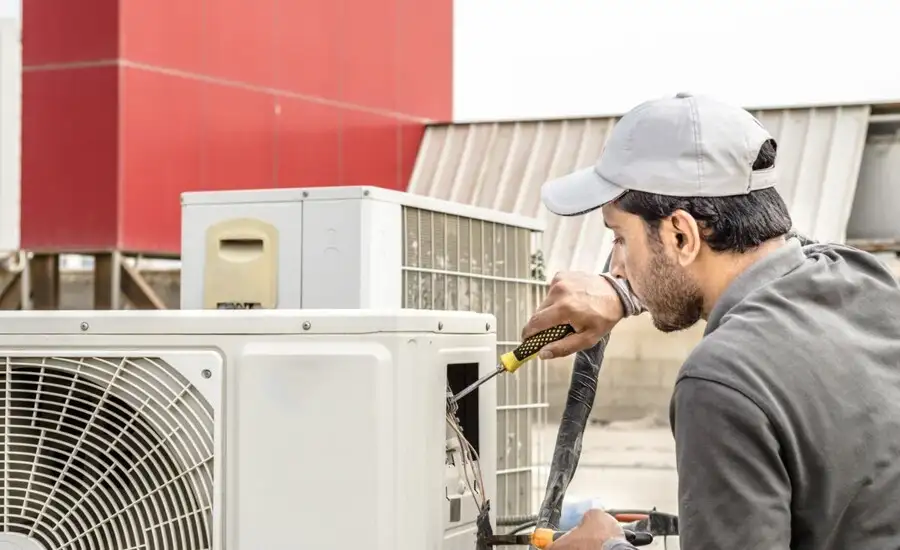For pleasant indoor temperatures to be maintained, especially during the sweltering summer months, an air conditioner (AC) is a must. However, routine maintenance is essential to guarantee that the unit runs well and lasts a long time. Regular inspections might be neglected, which can lead to future costly repairs, increased energy usage, and lower efficiency.
Energy Saver claims that regular maintenance on your air conditioner can drastically cut down on energy use and lessen your power costs. Thus, scheduling regular air conditioning service repair in Tulsa OK can effectively keep your system running smoothly and efficiently throughout the year.
In Tulsa, OK, air conditioning service repair is essential for maintaining optimal comfort during the hot summer months. Local technicians offer expert repairs and maintenance, ensuring your AC unit operates efficiently and reliably. With a variety of service options and prompt responses, residents can quickly address any cooling issues and keep their homes cool.
Common AC Issues
Air conditioners, like any other machine, can develop a range of problems over time. Knowing these frequent problems can help you see any concerns early and take the necessary action. Some of the most frequent issues include:
- Refrigerant Leaks: Your air conditioner’s ability to chill can be affected by a leak in the refrigerant, which is necessary for cooling. This not only reduces the efficiency of your AC but can also damage the compressor if left unaddressed.
- Clogged Filters: Dirty or clogged filters are one of the most common problems with AC units. They reduce airflow, lower indoor air quality, and make the AC work harder, which can lead to increased wear and tear.
- Frozen Coils: This issue occurs when the evaporator coils freeze, usually because of low refrigerant levels or poor airflow. It can result in the AC not cooling properly and even complete system failure if not resolved.
- Electrical Failures: Air conditioners have several electrical components, including fuses and wiring. Any faults in these components can prevent the unit from running or cause intermittent operation.
DIY Fixes vs. Professional Repairs
It’s critical to understand what AC maintenance and repair you can do yourself versus what needs to be done by a professional. While some tasks, like changing an air filter, are simple and can be done without specialized knowledge or tools, others are more complex and should be left to experts.
For instance, identifying and fixing refrigerant leaks or electrical issues can be dangerous for someone without proper training. According to Houzz, understanding when to call a professional can save you time and money and prevent further damage to your AC unit.
Tools You Need for DIY AC Fixes
For those who prefer to tackle basic AC maintenance tasks themselves, having the right tools on hand is crucial. Here are some essential tools that can help you perform basic fixes and maintenance on your AC unit:
- Screwdrivers: Various screwdriver sizes and types are required to access different parts of your air conditioning equipment.
- Multimeter: This device helps you measure electrical properties and can be handy for diagnosing electrical issues.
- Refrigerant Leak Detector: This tool helps identify refrigerant leaks, which is vital for maintaining your AC’s cooling efficiency.
- Fin Comb: A fin comb is used to clean and straighten the delicate fins on the evaporator and condenser coils.
- Vacuum Cleaner: Useful for cleaning dust and debris from the various components, especially the coils and filters.
How to Safely Inspect Your AC
Before diving into any repair work, it’s essential to inspect your AC unit safely. Always turn off the power to the unit to avoid the risk of electric shock. Examine the device visually first for any indications of wear and tear, such as frayed cables, leaks, or any odd debris.
If you notice anything out of the ordinary, it’s best to consult a professional for a thorough diagnosis. Safety should always be your top priority during any inspection or repair work.
Steps to Perform Basic AC Maintenance
Your AC unit’s lifespan and efficiency can both be extended by doing routine maintenance. Here are some simple steps to follow:
- Clean or Replace Filters: Filters should be cleaned or replaced every month during peak usage seasons. Not only do dirty filters restrict airflow, but they also drastically lower the AC’s efficiency.
- Check Thermostat Settings: Make sure that your thermostat is set to the correct temperature. Upgrade to a programmable thermostat if you don’t have one, as it can help optimize your AC’s efficiency.
- Inspect Ductwork: Check for any visible debris or blockages in the ductwork. Clean ducts can ensure optimal airflow and cooling performance.
- Clean the Evaporator and Condenser Coils: Over time, the coils can accumulate dust and debris, reducing their efficiency. Use a soft brush or a vacuum to clean them gently without causing any damage.
When to Call a Professional
While homeowners can perform basic maintenance, there are situations where professional intervention is necessary. It’s time to call in the pros if your AC unit is producing strange noises, isn’t producing cold air, or turns on and off repeatedly.
Skilled technicians possess the necessary equipment and knowledge to accurately identify and resolve intricate problems. Additionally, they can perform detailed inspections and maintenance routines that go beyond the basics, ensuring your AC unit stays in optimal condition.
Preventive Measures to Avoid Future AC Problems
Prevention is always better than cure, and this holds true for your AC unit as well. You may keep your AC operating efficiently all year long and save money on repairs by putting preventive measures into place. Schedule annual check-ups with a professional technician, keep the area around your AC unit clean and free from debris and ensure that your filters are changed regularly. By taking these preventive steps, you can reduce the likelihood of major problems and enjoy efficient cooling whenever you need it.
